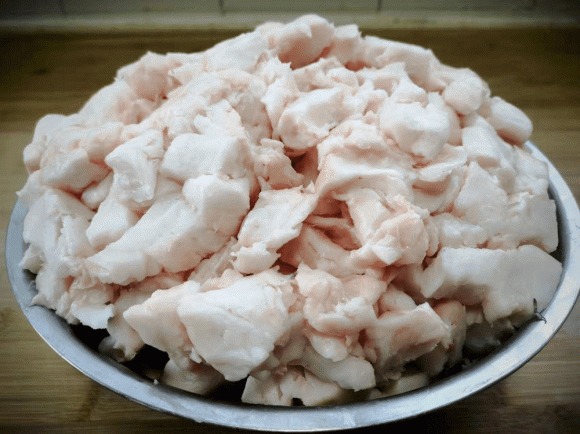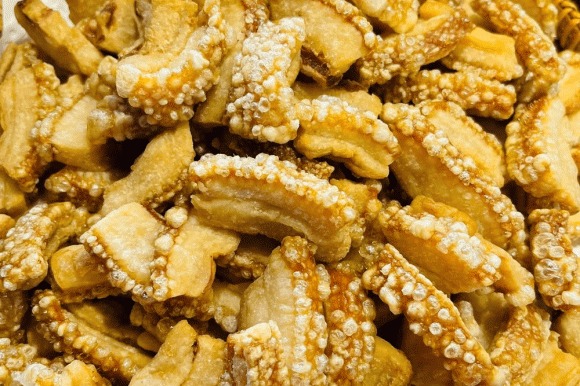Pork fat, a staple in Vietnamese cuisine, has recently gained international recognition for its surprising health benefits. A scientific study published by the BBC has analyzed over 1,000 popular foods globally, and the results have challenged the way we perceive this familiar ingredient.
In the ranking of the world’s 100 healthiest foods, pork fat impressively secured the 8th position, outranking so-called “superfoods” like chia seeds, avocados, and kale. This finding has surprised many, as pork fat has often been associated with negative health implications, such as cardiovascular issues, high cholesterol, and obesity.

The study highlights the nutritional value of pork fat and encourages a more balanced perspective on this much-maligned food item. When sourced from high-quality meat cuts like loin or leg, pork fat is not only a source of fat but also a treasure trove of essential nutrients, especially when used appropriately.
It is rich in protein, lipids, and vitamin B1, which is crucial for stress reduction, improved mood, and energy production. Interestingly, the vitamin B1 content in pork, including its fat, is eight times higher than in beef, which is renowned for its protein content.

The key to unlocking the benefits of pork fat lies in its preparation. When rendered slowly over low heat, the saturated fats and cholesterol undergo a unique transformation, becoming monounsaturated fats similar to those found in olive oil. This type of healthy fat reduces the risk of cardiovascular disease and helps maintain healthy cholesterol levels in the body.
In addition to its nutritional value, pork fat adds a distinct and savory flavor to dishes, from simple stir-fries to intricate deep-fried delicacies, enriching the culinary repertoire, especially in traditional Vietnamese cuisine.
However, moderation is key, as with all foods. Excessive consumption of pork fat can lead to calorie surplus and potential health issues, especially for those with sedentary lifestyles.
The BBC’s research not only validates the nutritional benefits of pork fat but also prompts a reevaluation of our dietary perceptions. As vegetable oils and processed foods gain traction, pork fat—a natural and traditional ingredient—is reclaiming its rightful place in our kitchens. It serves as a reminder that familiar foods can sometimes harbor unexpected health advantages, provided they are consumed in a balanced manner.
For lovers of Vietnamese cuisine, pork fat is more than just an ingredient; it is a connection to culinary heritage and nostalgic family meals. Its global recognition is a source of pride and an encouragement to embrace a scientific and balanced diet that honors traditional values.

































